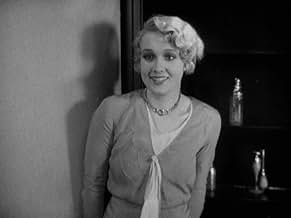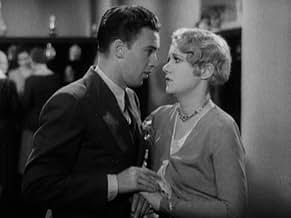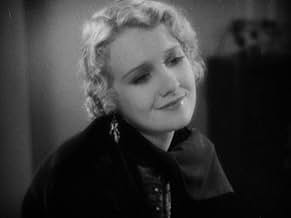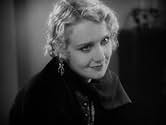Añade un argumento en tu idiomaThree department store employees, Connie, Franky, and Jerry, share an apartment together in New York City. Despite Jerry's pragmatism, Connie and Franky pursue wealthy men for financial gain... Leer todoThree department store employees, Connie, Franky, and Jerry, share an apartment together in New York City. Despite Jerry's pragmatism, Connie and Franky pursue wealthy men for financial gain, leading to disappointment and heartbreak.Three department store employees, Connie, Franky, and Jerry, share an apartment together in New York City. Despite Jerry's pragmatism, Connie and Franky pursue wealthy men for financial gain, leading to disappointment and heartbreak.
- Dirección
- Guión
- Reparto principal
- Premios
- 3 premios en total
- The Detective
- (as Robert O'Connor)
- A Mannequin
- (as Wilda Mansfield)
Reseñas destacadas
You can really see the onset of the Great Depression having an effect in this final film of the trilogy. The first two films involve lots of melodrama, but there is also widespread prosperity and a focus on living it up with partying that reflects the excesses of the 1920's. This final film really isn't about living it up at all. It's more about three shop girls just getting by and how the men in the lives of two of them (Anita Page and Dorothy Sebastian) promise the good life but end up raining down tragedy upon them, while the third shop girl, Gerry (Joan Crawford), has her own cynical attitude towards men reinforced by watching the fates of her two friends. That makes the ending seem a little tacked on and even unbelievable to some degree, but it's still a good film.
Unfortunately this film is neither on DVD or VHS. "Our Dancing Daughters" and "Our Modern Maidens" can be found on used VHS copies, but the transfer is pretty blurry. None of the three is on DVD, and considering their place in Joan Crawford's filmography, I find that to be a shame.
This is a pre-code film, and despite the above-mentioned problems, they're always interesting to watch. This one had to do with giving in to one's baser instincts (having sex) for money and the good life. This is 1930, and America was still preoccupied with class distinctions. Gerry refuses to give in to Tony, but her roommate Connie (Anita Page) is kept by his brother David. Franky (Dorothy Sebastian) marries a big talker.
Two scenes stick out as a sign of the times - outside Gerry's apartment building on a hot summer night, the street is teeming with kids playing, an ice cream cart, and people sitting on the stoop. A very realistic portrayal of cities back then. With no air conditioning and no television, people sat outside for the air and to talk with their neighbors. Social interaction, not social networks, Internet, and cable, provided their entertainment.
The second striking thing was the radio description of an engagement of a couple from socially prominent families. I remember seeing an old Vogue magazine where an woman engaged to some sort of royalty got a full page portrait. Not uncommon.
For anyone who only knows the hard-faced Joan Crawford of later years, this movie will serve as a revelation. Made for movies with those huge, mesmerizing eyes, beautiful face, and trim figure, Crawford shines here. At times she sounds like she's sporting some sort of affected accent, though I don't know why. Page and Sebastian are also very good in their roles. Montgomery is underused - he was more than a dashing leading man - but he looks great and does the role well.
All in all, worth seeing for the young Crawford and a look at life in 1930 for shop girls.
Jerry and Tony have a good meet-cute although it's a little creepy in today's world. In a modern movie, Tony would play up the exaggerated visual of being bowled over. The premise remains the same throughout history. Ah-OO-Ga! This is a good setup for a light fun rom-com. The modeling does get a bit repetitive although it was probably daring for its time. The dancing isn't special enough to be good musical work. Then it turns darker and ends in something really dark. This is pre-Code and an early talkie for Joan Crawford as she transitions from the silent era. She is certainly a star in this new cinematic landscape.
¿Sabías que...?
- CuriosidadesJerry tells her malingering roommate, "Snap out of it, Lady Vere de Vere." This lady was the subject of a poem by Alfred Lord Tennyson. She was the haughtiest and coldest lady in the peerage, and the one with the noblest title. Her name has become an ironic way of referring to someone who is acting snooty.
- Citas
Mrs. Hinkle, the Landlady: Mr. Carter, third floor front. He's a process server. That's a real influential job. He thinks you're pretty nice. He'd like to take you out.
Geraldine 'Gerry' March: No, thank you, Mrs. Hinkle. You see, I'm avoiding process servers this season
- ConexionesFeatured in Joan Crawford: The Ultimate Movie Star (2002)
- Banda sonoraThe Wedding March
(1843) (uncredited)
from "A Midsummer Night's Dream, Op.61"
Written by Felix Mendelssohn
Played during the opening and closing credits
Selecciones populares
- How long is Our Blushing Brides?Con tecnología de Alexa
Detalles
- Fecha de lanzamiento
- País de origen
- Idioma
- Títulos en diferentes países
- Our Blushing Brides
- Localizaciones del rodaje
- Empresa productora
- Ver más compañías en los créditos en IMDbPro
Taquilla
- Presupuesto
- 337.000 US$ (estimación)
- Duración1 hora 42 minutos
- Color




































